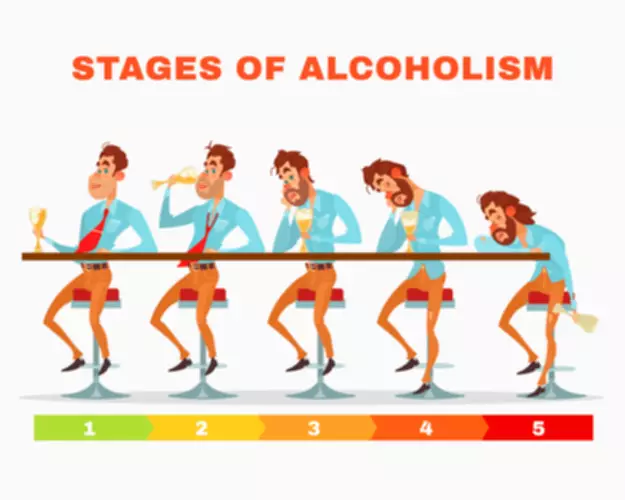Alcohol Facts and Statistics National Institute on Alcohol Abuse and Alcoholism NIAAA

Excess alcohol use can also impair nutrient absorption in the small intestine and increase the risk of malnutrition. By Geralyn Dexter, PhD, LMHCDexter has a doctorate in psychology and is a licensed mental health counselor with a focus on suicidal ideation, self-harm, and mood disorders. Your central nervous system consists of the brain, spinal cord, and neurons that communicate messages throughout your marijuana addiction body. It powers key functions and processes like movement, memory, speech, thought processes, and more. Your immune system works to keep you as healthy as possible by fighting off foreign invaders, such as viruses, bacteria, and toxins. To your body, alcohol is a toxin that interrupts your immune system’s ability to do its job, thereby compromising its function.

Take Our Substance Abuse Self-Assessment
While you may experience euphoria or relaxation at first, in the long run, alcohol affects neurotransmitters, which can lead to changes in your thoughts, moods, and behavior. Drinking alcohol can influence your psychological functioning and well-being. A comprehensive 2015 consequences of alcohol review found that alcohol use is one of the leading contributors to pancreatitis because it causes the pancreas to produce toxic substances. No matter how severe the problem may seem, evidence-based treatment can help people with AUD recover. A .gov website belongs to an official government organization in the United States.
Long-term Effects

The rate of alcohol-related emergency department visits increased by nearly 50% from 2006 to 2014, and about one-third of injuries treated at trauma centers are alcohol related. In addition, a significant number of sexual assaults involve alcohol use. If a person consumes large amounts of alcohol regularly, their tolerance can increase, and the body requires more alcohol to achieve the desired effect. Of major concern is the number of young people who consume alcohol.

Alcohol’s Effects on the Cardiovascular System
- It has been debated whether beverage type has differential effects.
- Other studies have examined the effect of a single binge-drinking episode and found impairment in brachial artery endothelial-dependent and -independent vasodilation (Bau et al. 2005; Hashimoto et al. 2001; Hijmering et al. 2007).
- In the United States, moderate drinking for healthy adults is different for men and women.
- If consumption stops suddenly, the person may experience withdrawal symptoms.
This makes speech and coordination — think reaction time and balance — =https://ecosoberhouse.com/ more difficult. If your body can’t manage and balance your blood sugar levels, you may experience greater complications and side effects related to diabetes. Having a glass of wine with dinner or a beer at a party here and there isn’t going to destroy your gut. But even low amounts of daily drinking and prolonged and heavy use of alcohol can lead to significant problems for your digestive system. Alcohol can temporarily calm restlessness and anxiety caused by ADHD, but heavy use worsens symptoms and creates health risks.
- Over time, your brain’s structure and function change, leading to tolerance, meaning you may require higher amounts of alcohol to achieve the desired effects.
- The main psychoactive ingredient in alcoholic beverages is ethanol.
- Professional treatments and support can help you overcome alcohol misuse and alcohol use disorder and improve your overall health and well-being.
- Alcohol use can damage the hippocampus, the part of your brain responsible for memory and learning.

If you are drinking heavily or are worried you may be dependent on alcohol, reach out to a healthcare provider before you start reducing your alcohol consumption to determine the safest way to make changes. There’s been an uptick in non-alcoholic drink options, as more and more companies are creating alternatives. A 2020 study found that when weekly drinkers were presented with and aware of increased non-alcoholic options, they were likely to choose them. Every person has their own reasons for drinking or wanting to reduce their alcohol consumption. Depending on how much you have been drinking, your body may experience physical and psychological changes as you reduce your intake, known as withdrawal.
- Raising awareness and providing support can help reduce risks and improve lives.
- That’s because alcohol can weaken your immune system, slow healing and make your body more susceptible to infection.
- That said, consuming high amounts does not provide greater health benefits.
- Yes, alcohol can interfere with how ADHD medications work, leading to side effects like nausea, irregular heartbeat, and impaired judgment.
